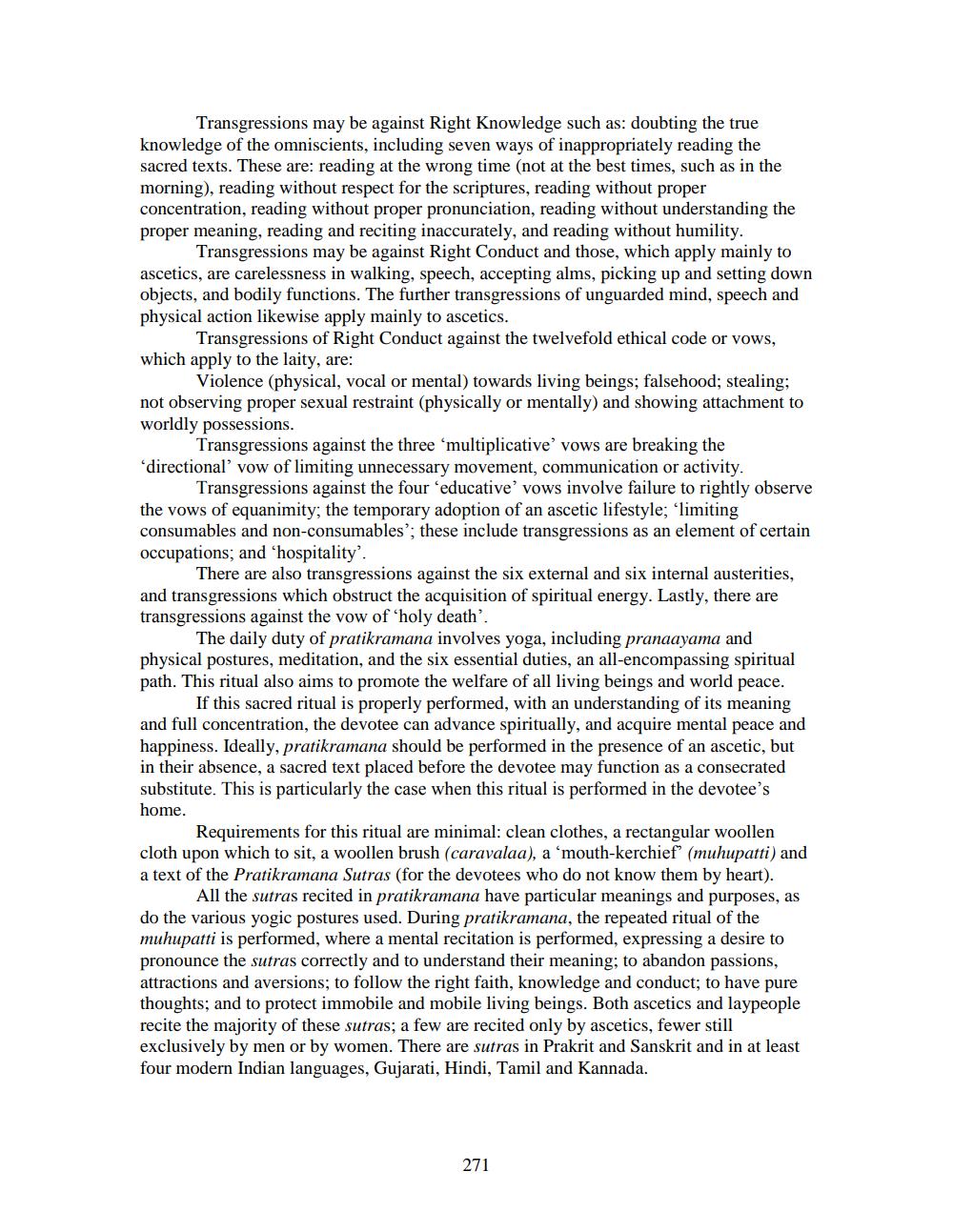________________
Transgressions may be against Right Knowledge such as: doubting the true knowledge of the omniscients, including seven ways of inappropriately reading the sacred texts. These are: reading at the wrong time (not at the best times, such as in the morning), reading without respect for the scriptures, reading without proper concentration, reading without proper pronunciation, reading without understanding the proper meaning, reading and reciting inaccurately, and reading without humility.
Transgressions may be against Right Conduct and those, which apply mainly to ascetics, are carelessness in walking, speech, accepting alms, picking up and setting down objects, and bodily functions. The further transgressions of unguarded mind, speech and physical action likewise apply mainly to ascetics.
Transgressions of Right Conduct against the twelvefold ethical code or vows, which apply to the laity, are:
Violence (physical, vocal or mental) towards living beings; falsehood; stealing; not observing proper sexual restraint (physically or mentally) and showing attachment to worldly possessions.
Transgressions against the three 'multiplicative' vows are breaking the directional' vow of limiting unnecessary movement, communication or activity.
Transgressions against the four educative' vows involve failure to rightly observe the vows of equanimity, the temporary adoption of an ascetic lifestyle; 'limiting consumables and non-consumables'; these include transgressions as an element of certain occupations; and 'hospitality'.
There are also transgressions against the six external and six internal austerities, and transgressions which obstruct the acquisition of spiritual energy. Lastly, there are transgressions against the vow of holy death'.
The daily duty of pratikramana involves yoga, including pranaayama and physical postures, meditation, and the six essential duties, an all-encompassing spiritual path. This ritual also aims to promote the welfare of all living beings and world peace.
If this sacred ritual is properly performed, with an understanding of its meaning and full concentration, the devotee can advance spiritually, and acquire mental peace and happiness. Ideally, pratikramana should be performed in the presence of an ascetic, but in their absence, a sacred text placed before the devotee may function as a consecrated substitute. This is particularly the case when this ritual is performed in the devotee's home.
Requirements for this ritual are minimal: clean clothes, a rectangular woollen cloth upon which to sit, a woollen brush (caravalaa), a ‘mouth-kerchief (muhupatti) and a text of the Pratikramana Sutras (for the devotees who do not know them by heart).
All the sutras recited in pratikramana have particular meanings and purposes, as do the various yogic postures used. During pratikramana, the repeated ritual of the muhupatti is performed, where a mental recitation is performed, expressing a desire to pronounce the sutras correctly and to understand their meaning; to abandon passions, attractions and aversions; to follow the right faith, knowledge and conduct; to have pure thoughts; and to protect immobile and mobile living beings. Both ascetics and laypeople recite the majority of these sutras; a few are recited only by ascetics, fewer still exclusively by men or by women. There are sutras in Prakrit and Sanskrit and in at least four modern Indian languages, Gujarati, Hindi, Tamil and Kannada.
271




